
What is the use of a religious state in Iran?
The exposure of extensive corruption at the top of the judiciary and the role of its chief justice in big financial embezzlements and the abuse of his powers are illustrative of systematic corruption in Iran which has been going on for years. Cases of corruption in official institutions include some against lawmakers and members of the Guardian Council.
Corruption in the highest ranks of the establishment shows, more than anything else, the moral failure of the Islamic State in Iran. If the extensive intervention of clerics in politics and the founding of a religious state were supposed to have one privilege in comparison with other political states in the world, it would undoubtedly be to create morality in society and politics.
Today, after four decades of a religious state in Iran, one can ask questions concerning the relationship between public morality and religion in the Islamic Republic. Is the level of corruption in society less than before the Islamic Revolution or in other countries? Is the judiciary — as the most important anti-corruption institution — efficient, committed to the law, and a defender of justice?
In the past three decades, three high-ranking religious officials –Ayatollah Yazdi, Ayatollah Sharoodi and Ayatollah Larijani – ran the Islamicized judicial system in Iran. If we look at the significant rise of embezzlement and large-scale theft in society and within the judiciary, we might say that as a result of these Ayatollahs, the judiciary has turned into a monstrous place where corruption, open bribery, and injustice take place.
What is more, this branch is so inattentive towards issues such as justice, citizens’ rights, and observing laws in the country’s courts. The illegal detention of individuals in prisons without trial and access to a lawyer, torture, coerced confessions, inattention towards victims’ rights, and non-transparent courts have turned the judiciary into a tool in the hands of authoritarian institutions and their security forces.
What is happening in Iran today is nothing but the bitter tragedy of religion and the clergy interfering in the process of governance. This is not just what the secular critics of this religious state say; many Muslim thinkers and clerics, too, have reached the same conclusion.
Radio Farda
JCPOA has become complicated, with little time to preserve it
The editorial of Setareh Sobh explains how Iran missed opportunities for consolidating the nuclear deal and what difficulties lie ahead if the deal is to be preserved.
Iran’s nuclear program has now resulted in complicated dimensions. With Iran taking the third step, there might not be much hope for preserving the nuclear deal (JCPOA). In the past, the Islamic Republic did have the chance to advance its nuclear policies in such a way as to avoid today’s tensions. However, the opportunities were not properly seized.
If we take the period between signing the JCPOA and Donald Trump becoming the US President, the Islamic Republic’s officials had the chance to consolidate the nuclear deal through more extensive interactions with the world. Nevertheless, because of some measures by domestic hardliners and the negative atmosphere created by anti-Iranian hardliners abroad, such interactions didn’t take place.
When Trump took office, there were still chances to stop the United States from pulling out of the nuclear deal or making it less likely. But these opportunities too were missed.
Under current circumstances, one cannot have unrealistic expectations from the other side. Currently, the tensions must be resolved more open-handedly. For instance, as for selling oil, Iranian officials cannot ask the other side to prepare conditions for Iran to sell 2 million barrels of oil per day. On the other hand, the Americans cannot expect the Islamic Republic to return to fully implementing the JCPOA without receiving any concessions.
Meanwhile, one of the existing problems is that Iran’s Foreign Ministry is incapable of acting independently. The Iranian government and the Foreign Ministry are not the final decision-makers in foreign policy and national security issues. Consequently, the other side cannot trust the Iranian government and foreign ministry, which makes the negotiations more difficult.
Setareh Sobh – August 11
Can the third step in reducing commitments in the nuclear deal break the existing stalemate?
The editorial of Setareh Sobh questions the usefulness of the Islamic Republic’s measures in cutting back its commitments in the nuclear deal.
Sixteen months ago, the US administration withdrew from the nuclear deal – a measure whose consequences have created many economic problems for the Islamic Republic. After the US measure, Iran decided to cut back on its nuclear commitments within the deal, and it has taken three steps in this regard so far.
When we look at these three steps, we realize that reducing nuclear obligations has had no impact on the other sides – particularly the Europeans – and they have not returned to their commitments in the nuclear deal.
Now the question is how far the Islamic Republic will go in reducing its commitments in the deal. What were the results of the steps taken so far? Although Iran is not to be blamed in this regard, Iranian officials must know that the world construes the measures taken by Iran and America differently.
What Iran does in the name of reducing its nuclear commitments is seen more as a provocative measure than what is it is entitled to. What is more, such measures have had no positive outcomes for the country. Such measures might result in the European Union distancing itself from Iran, and Trump’s administration may gain what it wishes for.
On Friday, September 6, Iran took its third step in reducing its commitments in the nuclear deal. As such, we might be witnessing the fourth, fifth, or sixth steps in the upcoming months. But it is not clear how far this process must continue so Iran can achieve its goals and break the existing stalemate.
Iranian officials have tried to present their steps in such a way as if Iran hasn’t breached the nuclear deal and yet isn’t willing to fully implement it. Iran, however, cannot hope for resolving the current deadlock with such measures.
Setareh Sobh- September 9

Has Iran lost hope in Europe?
Reduction of Iran’s commitments in the JCPOA
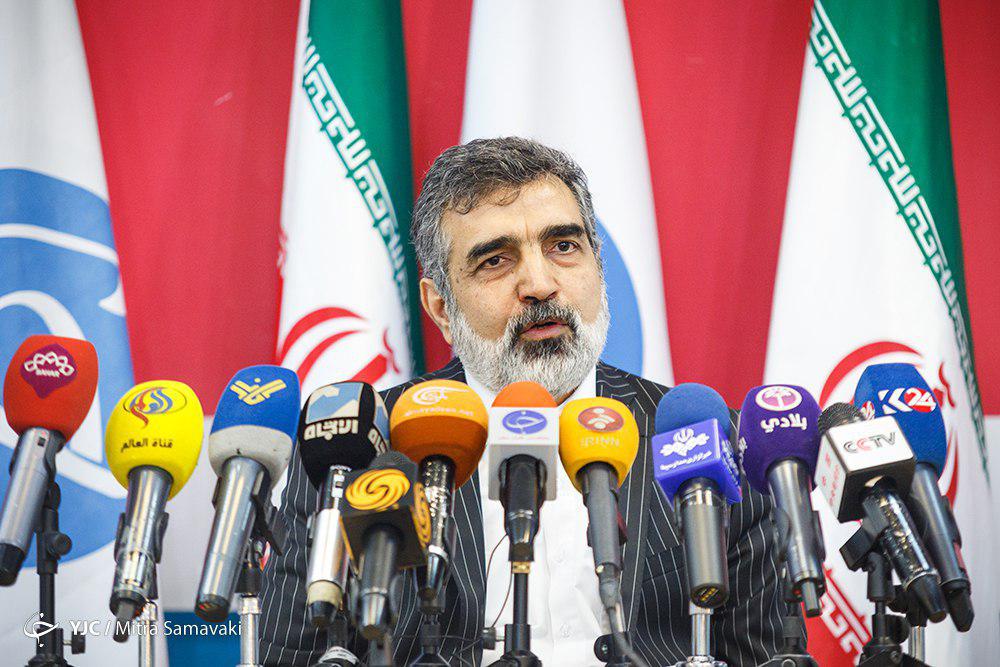
Behrooz Kamalvandi, the Spokesperson of the Atomic Energy Organization of Iran (AEOI), announced the measures that Iran would take in the third step of it cutting back on its nuclear commitments.
Cutting back on nuclear commitments is a series of measures taken by the Islamic Republic to put pressure on Europe and to threaten America. The reduction of commitments has taken place step by step and the third step was taken on Friday, September 6.
Both sides are warning and threatening, but what is clear is that the developments are not to Iran’s advantage. America is determined not to lift the sanctions; Europe is not capable of creating a financial channel for trade with Iran. Meanwhile, Iran’s reduction in its commitments in the nuclear deal makes Europe more frustrated.
According to Kamalvandi, Iran’s first measure in the third step was to start enriching uranium from its research chains. The second measure is to launch IR-6s centrifuges, which according to the JCPOA was going to start from the 11th year of the deal. The third measure is to create chains of 20 IR-4 centrifuges, which Iran was supposed to start from the 11th year of the JCPOA. Iran’s fourth measure is to launch a chain of 20 IR-6 centrifuges, which Iran was supposed to do 2 months from now.
The new decision of the Islamic Republic to install more advanced centrifuges has resulted in a reaction from European officials, and the US Secretary of State Mike Pompeo has called it unacceptable.
The spokesperson of the German Foreign Ministry said that they want Iran to halt worsening the situation, urging that it is still not too late for Iran to stop taking this wrong direction.
France’s Foreign Ministry’s spokesperson too urged that Iran must stop any measures which are against its commitments in the nuclear deal, as such steps might prevent efforts to deescalate tensions. Meanwhile, the British Foreign Ministry called Iran’s plan to suspend limits on nuclear research as “deeply concerning”.
With the mounting pressure of sanctions, it seems that Iran is no longer concerned over the position of European countries towards its own measures and is acting recklessly in its own regional policies.
Although Iran has repeatedly announced that it doesn’t intend to pull out of the JCPOA, however by gradually reducing its commitments might make the deal meaningless.
Zeitoon
Heavy jail sentences issued for workers
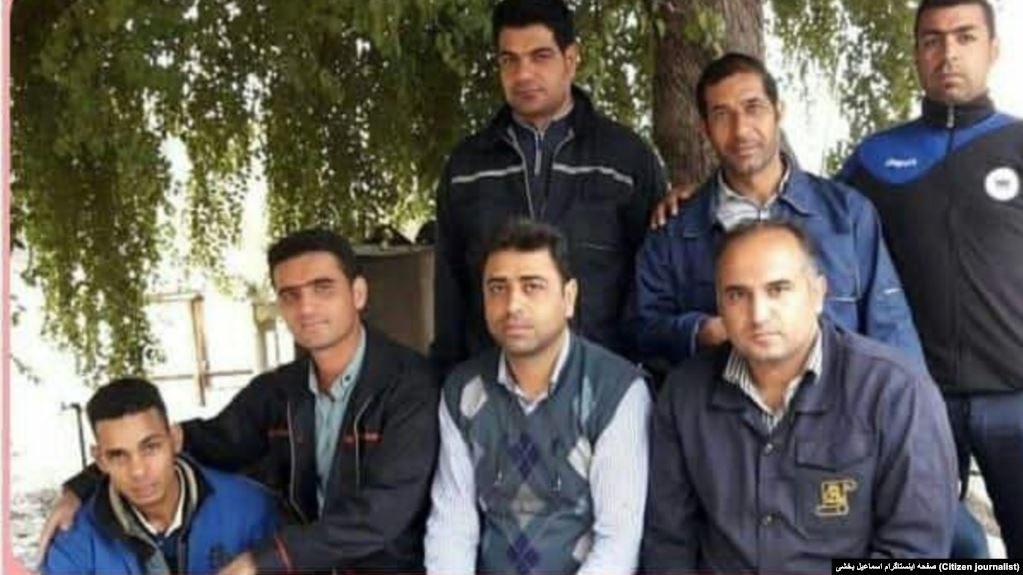
260 Iranian political and civil activists protest the regime’s systematic increase of pressure
A number of detained workers of the Haft Tapeh Sugarcane Factory in southern Iran have received heavy prison sentences after participating in protest assemblies to demand their unpaid wages.
Esmaeil Bakhshi, workers’ representative and a prominent labor activist, has been sentenced to 14 years in jail. Moreover, the 28th branch of Tehran’s revolutionary court sentenced civil activist Sepideh Gholian and 4 journalists who covered labor protests in a student magazine to 18 years in jail in total.
Bakhshi and Gholian were both taken into custody after participating in labor protests in southern Iran last winter. After being released, they were arrested again after talking about being tortured in jail. The arrests were made after their coerced confessions were aired on Iran’s state TV.
Parliament Member Parvaneh Salahshouri has fiercely criticized the recent heavy sentences issued against labor activists. Salahshouri believes the new Chief of Justice Ebrahim Raisi is responsible for such harsh sentences.
“These recent sentences show that Mr. Raisi’s approach is much harsher than those of his predecessors,” Salahshouri wrote in a Twitter post.
In addition, 260 political and civil activists from within Iran protested against a systematic increase of pressure on social activists as well as against heavy imprisonment sentences being issued against them. The protesters pointed to Ebrahim Raisi’s new slogan – “sweet taste of justice” – emphasizing that so far, social activists haven’t received anything but the bitter taste of heavy sentences and high bail costs.
Radio Farda
Radio Farda
Iran’s ‘Blue girl’ dies after setting herself on fire
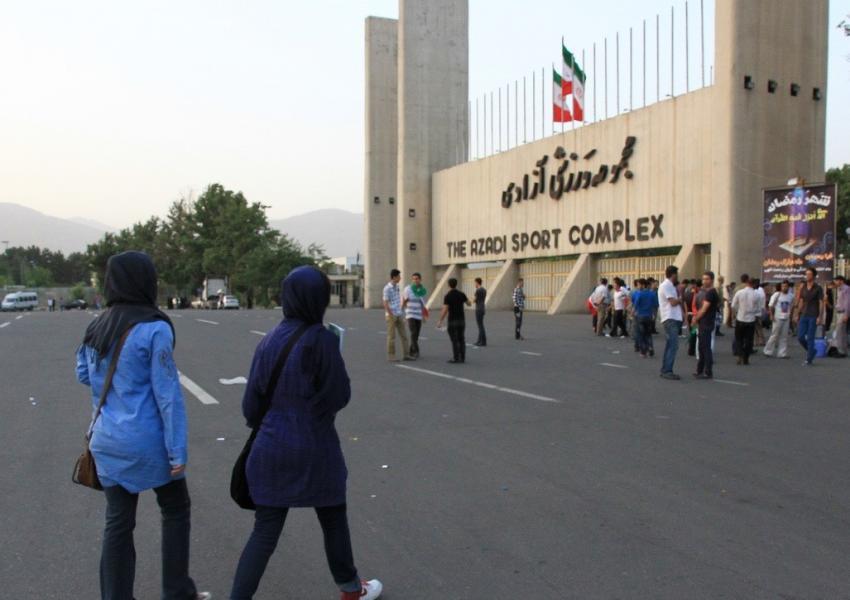
The girl who set herself on fire after she was not allowed into a sports stadium died and was buried by security forces. Sahar Khodayari — a 29-year-old girl — was a fan of the Esteghlal soccer team. That is why she was known as the “blue girl” — the color of her favorite team — on social media.
Sahar Khodayari set herself on fire in front of Tehran’s Revolutionary Court and later died in hospital. She had been arrested last March when trying to enter Tehran’s Azadi Stadium disguised as a man. She spent several days in prison and then was released on bail.
Khodaryari went to the court to follow up on her case where she heard that she might be sentenced to either 6 months or 2 years in jail. It was then that she set fire to herself by pouring petrol on her body in front of the court.
According to two informed sources, her body was buried by security forces. Even her relatives were not allowed to attend the burial service. They were also warned against talking about the time or manner of their daughter’s burial.
In Iran, women are banned from stadiums to watch sports.
Iranians reacted extensively and angrily to the death of the Blue girl on the internet. Ali Karimi, a famous Iranian soccer player, on his Instagram page, called for stadiums to be boycotted in protest against Sahar Khodayari’s death.
Former captain of the national soccer team, Andranik Teymorian, tweeted in this regard that there will come a time when one of the biggest stadiums in Tehran will be called “Sahar”.
Amnesty International, too, issued a statement in this regard saying that the shocking death of a soccer fan girl after setting herself on fire shows indifference to women’s rights in Iran.
Iran International
Radio Farda
Moqtada Sadr sitting with Khamenei
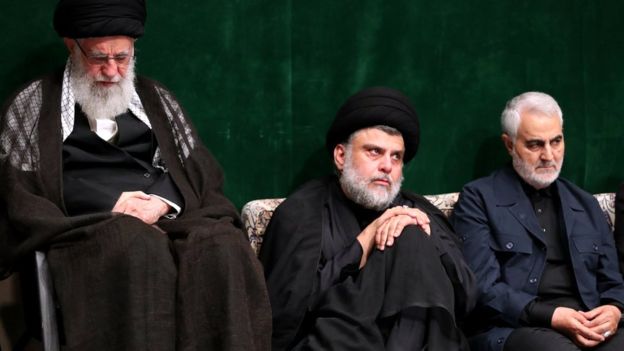
The office of Ali Khamenei released a photo showing Moqtada Sadr — an Iraqi Shia political leader — sitting with Khamenei and General Soleimani in an official mourning ceremony on the occasion of Ashura. According to Iran’s state media, Sadr has spent the past few days in the city of Qom.
Moqtada Sadr was one of the radical Iraqi leaders after the collapse of Saddam Hossein and had close relations with the Islamic Republic. However, during the Iraqi parliamentarian election, he distanced himself from Iran, announcing that he wouldn’t be ready to form a coalition in the Iraqi parliament with Iraqi groups that were close to Iran.
Sadr has also been in favor of dismantling Hashd al Shaabi after the full destruction of ISIS – a view that is completely against that of Iran’s Supreme Leader. Khamenei had previously asked the Iraqi Prime Minister to preserve these forces.
BBC Persian
Production of petrochemical products to increase by 50%
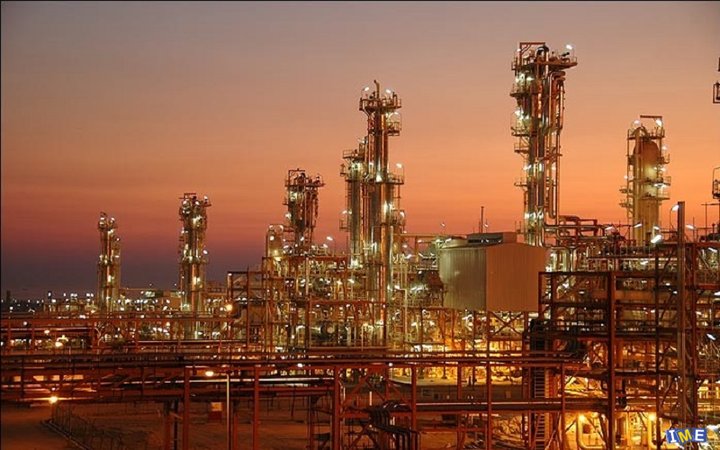
The CEO of Iran’s National Petrochemical Industry Mohammadi announced a 50% increase in Iran’s capacity for producing petrochemical products, adding that currently 66 million tons of petrochemical products are produced and this will reach 100 million tons in the next step.
Mohammadi stated that a part of the 66 million tons is used as feed in Iran’s petrochemical industry itself, and 31 million tons are supplied to the market as final products.
The CEO of Iran’s National Petrochemical Industry urged that 70% of this industry’s products –22.5 million tons – are exported, and 8.5 million tons are supplied to the domestic market.
According to Mohammadi, Iran currently gains $17 billion from selling petrochemical products in domestic and foreign markets; as a result, this industry plays the main role in Iran’s non-oil exports.
The CEO of Iran’s National Petrochemical Industry said that the necessary planning has been made to increase the capacity of this industry by 2021 from 66 million tons to 100 million tons, which will be equal to a 50% increase. He added that the revenue of this industry will subsequently increase from $17 billion to $25 billion.
IRINN
Petrochemicals are Iran’s permanent source of income

A member of the Iranian Parliament’s Energy Committee has said that because of US sanctions, expenses of Iran’s petrochemical exports have increased. “Regardless, the foreign currency revenue earned from petrochemical exports is considered as a permanent source of income for the country,” Jalal Mirzaei added.
Marketing and sales have become difficult due to the US sanctions, so Iran should find different ways to sell its petrochemical products, he continued.
As of 2013, Iran has developed its petrochemical industry; namely, 15 petrochemical projects– in which $5.6 billion was invested– have been carried out. Therefore, manufacturing petrochemical products increased by 32% in 2018, and their export grew by 61% in recent years.
Iran’s Oil Minister Bijan Zanganeh previously announced that Iran’s petrochemical industry is preparing itself for a second leap, saying Iran will be manufacturing 100 million tons of petrochemical products on a yearly basis by 2021.
Etemad Online
